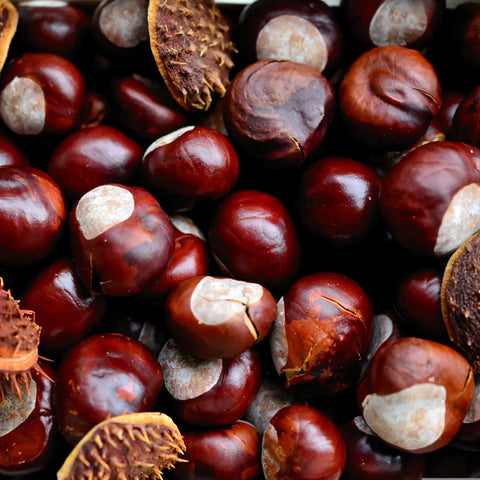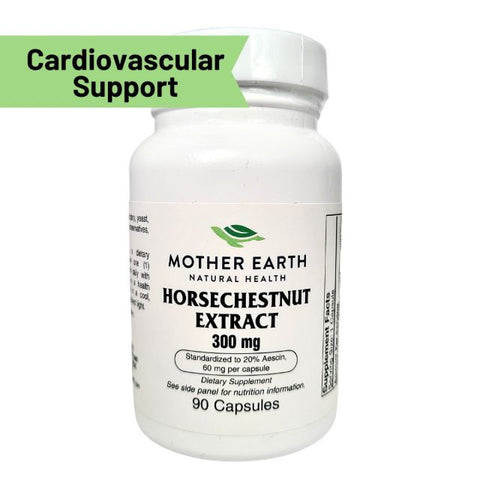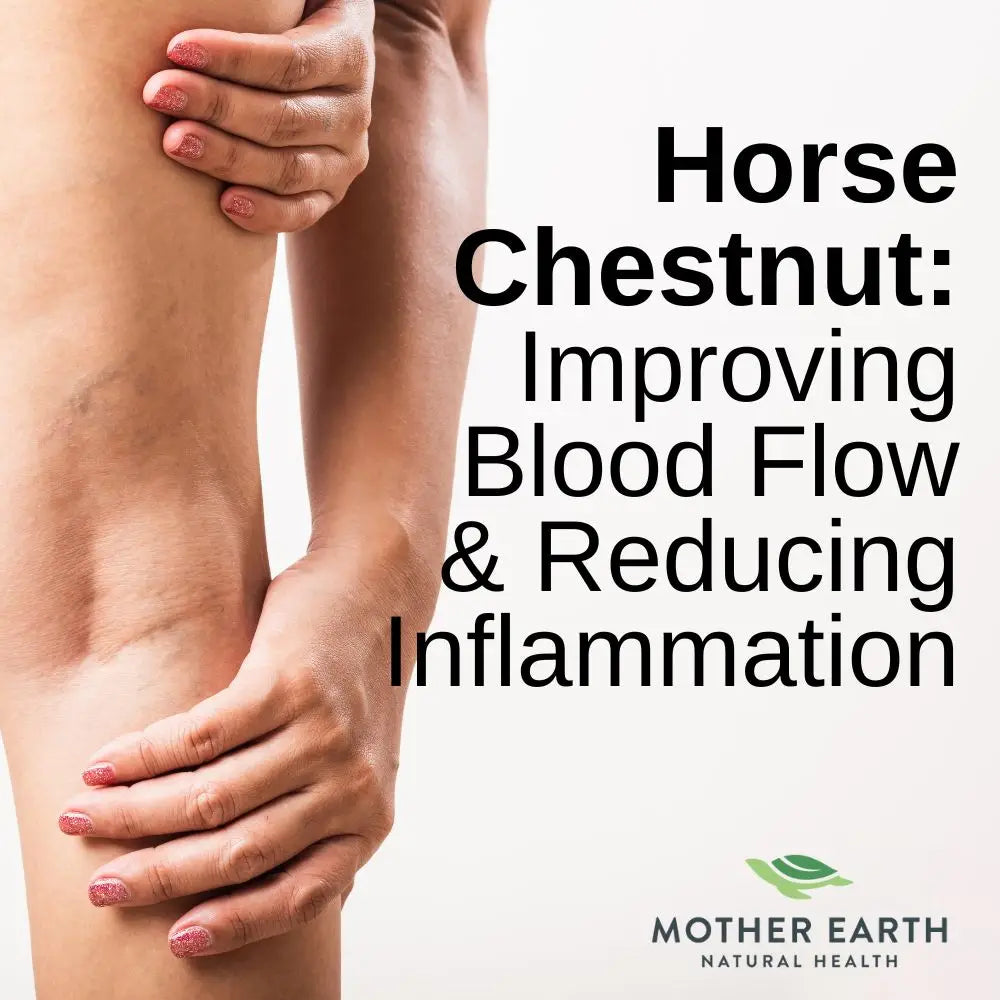Horse Chestnut extract is a natural remedy derived from the seeds of the horse chestnut tree, scientifically known as Aesculus hippocastanum. It has been used for centuries in traditional medicine for its various therapeutic properties. Horse Chestnut extract is rich in active compounds such as aescin, flavonoids, and tannins, which contribute to its health benefits. This powerful extract is commonly used to improve blood circulation, reduce inflammation, and strengthen blood vessels.
The uses and benefits of horse chestnut extract
Horse Chestnut extract offers a wide range of uses and benefits. One of its primary uses is for the treatment of chronic venous insufficiency (CVI), a condition characterized by poor blood circulation in the legs. Studies have shown that horse chestnut extract can reduce swelling, pain, and other symptoms associated with CVI, making it an effective treatment option.
Additionally, horse chestnut extract has been found to be beneficial for hemorrhoids, varicose veins, and leg ulcers. Its anti-inflammatory properties help reduce swelling and discomfort, while its ability to strengthen blood vessels promotes better circulation. Furthermore, horse chestnut extract has shown potential in reducing the appearance of spider veins and improving overall skin health.
Understanding the active compounds in horse chestnut extract

A key component of horse chestnut extract is aescin, a compound known for its anti-inflammatory and vasoconstrictive effects. Aescin helps to reduce the leakage of fluids from blood vessels and strengthens capillary walls, thus improving blood flow and reducing swelling. This active compound also inhibits the activity of enzymes that break down connective tissue, which can contribute to improved vein health.
In addition to aescin, horse chestnut extract contains flavonoids, which possess antioxidant properties. These flavonoids help protect the body's cells from damage caused by free radicals. The tannins present in horse chestnut extract also contribute to its therapeutic effects by reducing inflammation and promoting wound healing.
Determining the ideal daily dose of horse chestnut extract

Finding the ideal daily dose of horse chestnut extract depends on several factors, including the specific condition being treated and the concentration of the extract. It is crucial to consult with a healthcare professional before starting any new supplement regimen to determine the appropriate dosage for your individual needs.
For the treatment of CVI, the typical recommended dosage ranges from 300 to 600 mg of horse chestnut extract standardized to contain 50 mg of aescin. This dosage is usually divided into two or three smaller doses taken throughout the day. However, it is important to note that individual responses may vary, and it may take several weeks to see noticeable improvements.
Maximizing the benefits of horse chestnut extract through proper dosage
To maximize the benefits of horse chestnut extract, it is essential to follow the recommended dosage and frequency of administration. Taking the extract consistently and as directed ensures that the active compounds remain in your system at therapeutic levels. It is important not to exceed the recommended dosage, as higher doses may increase the risk of side effects.
In some cases, combining horse chestnut extract with other natural remedies or supplements may enhance its effects. For example, taking horse chestnut extract alongside vitamin C can help strengthen blood vessels and improve overall cardiovascular health. However, it is always advisable to consult with a healthcare professional before combining different supplements to ensure compatibility and safety.
Potential side effects and precautions of horse chestnut extract
While horse chestnut extract is generally considered safe when taken at recommended dosages, it is essential to be aware of potential side effects and precautions. Some individuals may experience gastrointestinal discomfort, such as stomach upset or nausea, when first starting horse chestnut extract. These symptoms are typically mild and subside over time.
Rarely, allergic reactions may occur, characterized by itching, rash, or difficulty breathing. If you experience any of these symptoms, discontinue use immediately and seek medical attention. It is important to note that horse chestnut extract should not be used by individuals with liver or kidney disease, as it may worsen these conditions.
Different forms of horse chestnut extract and their effectiveness
Horse Chestnut extract is available in various forms, including capsules, tablets, creams, and gels. Each form has its own advantages and effectiveness depending on the intended use. Oral supplements, such as capsules and tablets, are commonly used for systemic effects, targeting overall blood circulation and vein health.
Topical creams and gels containing horse chestnut extract are primarily used for localized relief, such as reducing swelling and discomfort associated with varicose veins or hemorrhoids. These topical applications provide direct absorption of the active compounds into the affected area, resulting in targeted relief.
How to choose a high-quality horse chestnut extract supplement
When choosing a horse chestnut extract supplement, it is important to ensure its quality and effectiveness. Look for products that are standardized to contain a specific percentage of aescin, typically between 16% and 20%. This ensures that you are getting a consistent and potent dose of the active compound.
Additionally, opt for supplements that have undergone third-party testing to verify their purity and potency. Look for certifications from reputable organizations, such as the United States Pharmacopeia (USP) or NSF International, which ensure that the product meets stringent quality standards.
Other natural remedies and supplements that complement horse chestnut extract
While horse chestnut extract offers numerous benefits, it can also be complemented by other natural remedies and supplements. For example, combining horse chestnut extract with bioflavonoids, such as rutin or hesperidin, can enhance its anti-inflammatory and antioxidant effects.
Furthermore, incorporating lifestyle modifications, such as regular exercise, maintaining a healthy weight, and avoiding prolonged periods of sitting or standing, can significantly improve blood circulation and overall vein health. These modifications work synergistically with horse chestnut extract to maximize its benefits.
Conclusion: Incorporating horse chestnut extract into your daily routine
Incorporating horse chestnut extract into your daily routine can provide numerous health benefits, particularly for improving blood circulation and maintaining vein health. By understanding its active compounds, determining the ideal daily dose, and maximizing its effects through proper dosage and complementary supplements, you can harness the full potential of horse chestnut extract.
Remember to consult with a healthcare professional before starting any new supplement regimen, especially if you have any pre-existing medical conditions or are taking other medications. By following the recommended dosage and precautions, you can safely and effectively incorporate horse chestnut extract into your daily routine and experience its remarkable benefits.
Consult with a healthcare professional to determine the ideal daily dose of horse chestnut extract for your individual needs and to discuss potential interactions with other medications or supplements.

